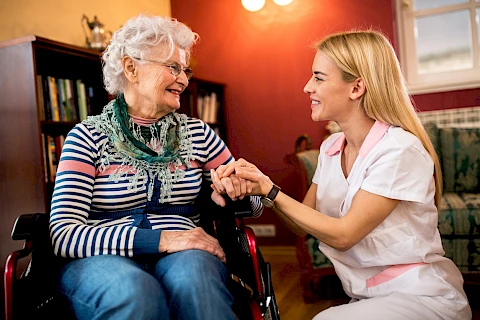
It can be challenging and emotional when you realize a senior loved one needs more help. The journey involves understanding what type of care they require and how you can best provide it. Let’s explore the difference between medical care and companion care. Knowing these distinctions will help you decide whether you can provide the care yourself or if you should consider professional help.
What Is Medical Care?
Medical care focuses on your senior loved one's health and medical needs. This type of care includes tasks like:
- Managing medications and ensuring they are taken correctly
- Providing wound care to prevent infections
- Assisting with physical therapy exercises as directed by a healthcare provider
Medical care often requires specific skills and qualifications. For instance, handling medications properly is crucial for the health of your loved one. This type of care is usually necessary when your senior has chronic illnesses, needs ongoing treatments, or has recently been discharged from the hospital.
What Is Companion Care?
Companion care is different from medical care. It focuses on emotional support and helping with daily activities. Here are some examples:
- Engaging in social interactions like conversations, playing games, or accompanying them on walks
- Preparing meals and helping with light housekeeping duties
- Assisting with errands and transportation
The benefits of companion care go beyond just physical assistance. Regular social interaction can improve a senior's emotional and mental well-being, keeping them more engaged and active. Companion care is sufficient when the senior mostly needs someone to be there for them and help with daily tasks without needing significant medical attention.
Assessing Your Ability to Provide Care
Before deciding what care to provide, you need to assess your own abilities. Evaluate your skills and how comfortable you are with medical tasks. Take stock of your emotional readiness and physical capability to handle caregiving responsibilities. Think about how you will balance caregiving with your personal and professional life. Finally, learn to recognize when it's too much for you and when professional help is needed.
Caring for a senior can be exhausting and demanding. It's important to know your limits and set aside time for your own well-being.
Deciding What Care to Arrange
Once you've assessed your abilities, the next step is to decide what type of care your loved one needs. Evaluate their specific needs. Do they primarily need medical assistance or social interaction and help with daily tasks? Have open discussions with family members and your senior loved one to understand everyone's viewpoints. Consider the financial aspect. Can you afford professional caregiving services? Are there insurance options or other financial support available? Look into local resources and professional services that can help. You might be surprised by what you find.
We're Here for Families Like Yours
Knowing you have support can make all the difference in times of need. If you or your senior loved one lives in Holly Springs, Horn Lake, Olive Branch, Southaven, or Oxford, Senior Helpers Northern Mississippi is here for you. To learn more about our in-home companion care services, please contact us today.